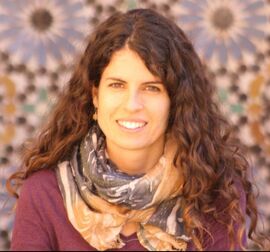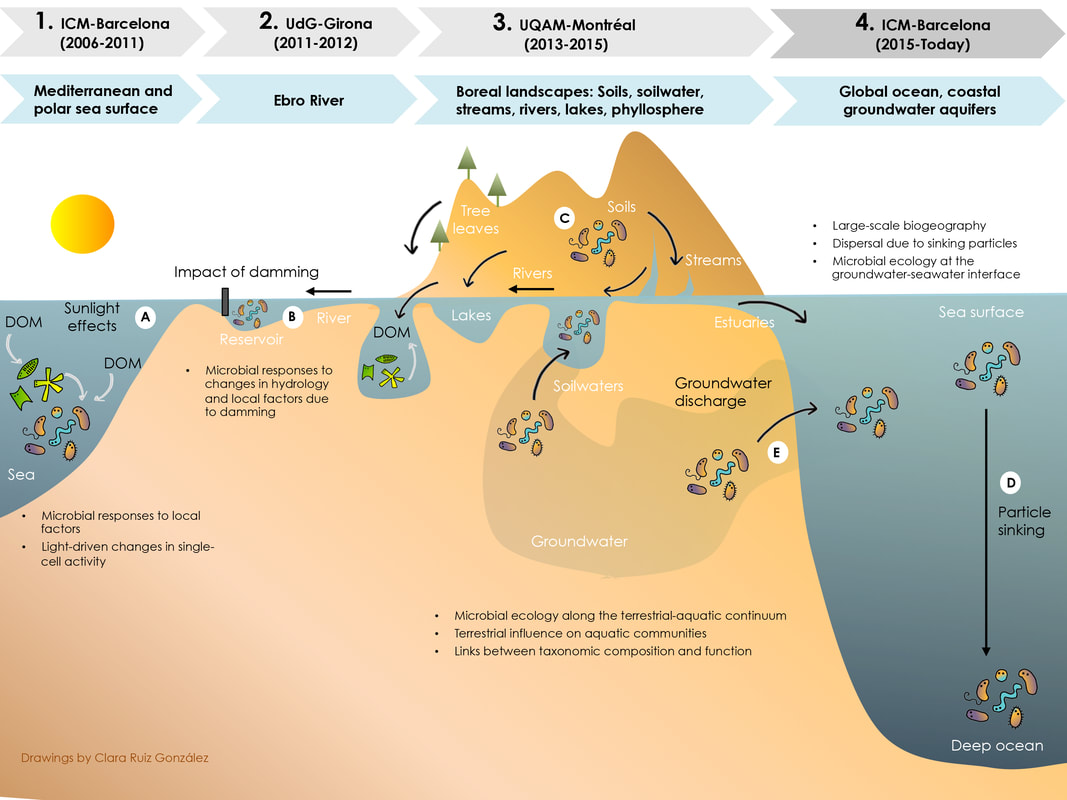Clara Ruiz-González
|
I am an aquatic microbial ecologist. I am interested in understanding the drivers and role of microbial communities in aquatic ecosystems, aiming at predicting how changes in microbial diversity may impact biogeochemical processes. During my career, I have progressively moved from a detailed experimental assessment of the responses of marine microbes to environmental factors using microscope techniques, towards a more comprehensive and theoretical exploration of the regional and historical processes shaping microbial communities, by means of large-scale samplings of terrestrial, freshwater and marine ecosystems and massive DNA sequencing. This shift made me aware of the relevance of dispersal for shaping the diversity and activity of aquatic microbial communities, which is one of my main current research objectives.
|
My trajectory
|
I did my PhD at the Institut de Ciències del Mar (ICM-CSIC) in Barcelona (Spain, 2006-2011), during which I studied how sunlight influences the processing of carbon by different marine bacterial and phytoplankton groups (A). The use of molecular techniques that allow measuring the incorporation of organic compounds by single cells under the microscope allowed identifying the responses of specific groups of bacteria and phytoplankton to different light regimes. During my postdoctoral stage, I moved my focus to the study of freshwater bacterial communities through the use of high throughput sequencing technologies, which allow a detailed description of microbial communities: First, at the University of Girona (Spain, 2011-2012), I investigated the effects of damming on riverine bacterial communities (B), and then at the Université du Québec à Montréal (Canada, 2013-2015), I focused on the study of the large-scale biogeography of terrestrial and aquatic bacterial communities and their connectivity across the landscape (C).
Since 2015 I am back at ICM-CSIC in Barcelona. Here, building on my prior research on microbial ecology across the terrestrial-aquatic interface, I have initiated a research line on groundwater-seawater microbial connectivity in the coastal ocean (E, see PROJECTS), but I also study how microbial dispersal shapes the large-scale biogeography of marine bacteria in the global ocean (D). In addition, I am exploring the ecology and diversity of a largely unknown component of aquatic microbial communities, the ultramicrobacteria, tiny bacteria that escape most sampling approaches but that can play important roles when dispersed between ecosystems. Overall, my scientific experience has consolidated between research fields that not always communicate, such as limnology, oceanography and theoretical ecology. This trajectory has provided me with an unusual balance between these disciplines that I try to maintain in my research. |
Schematic representation of my scientific trajectory since 2006, main lines of research followed during each stage (indicated by the letters, see main text) and targeted processes and ecosystems of study. Black arrows indicate some of the microbial dispersal routes assessed, white arrows indicate biological processes like consumption and production of dissolved organic matter (DOM).


